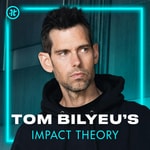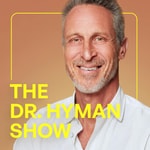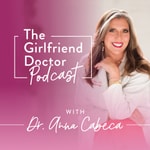Critically Speaking – Détails, épisodes et analyse
Détails du podcast
Informations techniques et générales issues du flux RSS du podcast.

Critically Speaking
Therese Markow
Fréquence : 1 épisode/16j. Total Éps: 100

Classements récents
Dernières positions dans les classements Apple Podcasts et Spotify.
Apple Podcasts
🇬🇧 Grande Bretagne - science
28/10/2024#72🇬🇧 Grande Bretagne - science
27/10/2024#92
Spotify
Aucun classement récent disponible
Liens partagés entre épisodes et podcasts
Liens présents dans les descriptions d'épisodes et autres podcasts les utilisant également.
See all- https://www.turnkeypodcast.com/
1813 partages
- https://www.ewg.org/
228 partages
- https://criticallyspeaking.net/
101 partages
- https://twitter.com/CritiSpeak
95 partages
- https://twitter.com/DrFeliceGersh
40 partages
- https://twitter.com/TheSmartHuman
9 partages
- https://www.instagram.com/dr.felicegersh
54 partages
- https://www.instagram.com/thesmarthuman
29 partages
- https://www.instagram.com/drshannaswan
10 partages
Qualité et score du flux RSS
Évaluation technique de la qualité et de la structure du flux RSS.
See allScore global : 73%
Historique des publications
Répartition mensuelle des publications d'épisodes au fil des années.
Dr. John Sweller: Why Johnny Can't Read
Saison 1 · Épisode 161
mardi 22 octobre 2024 • Durée 33:38
In this episode, Therese Markow and Dr. John Sweller discuss the decline in student preparedness for college and how the modern education system, which has shifted from knowledge acquisition to inquiry-based learning, is at the root of that decline. Dr. Sweller explains his Cognitive Load Theory, breaks down the differences between working memory and long-term memory, and why ineffective teaching methods continue to survive. Finally, they talk about the changemakers in education and how political and bureaucratic intervention can drive educational reform.
Key Takeaways:
-
Education changed about 1-2 decades ago. The emphasis switched from the acquisition of knowledge to how to acquire knowledge itself. We need to emphasize the acquisition, not the discovery, of knowledge in education.
-
Students who are subjected to inquiry-based educational approaches do substantially worse on international tests than students who are exposed to a knowledge-rich curriculum. The more emphasis your education system places on inquiry learning, the worse the students do.
-
If you don’t show students how to do something and they don’t figure it out themselves, it cannot go into long-term memory.
-
The best way to obtain information is to obtain it from somebody else. If you want to efficiently have somebody learn something, the best way to do it is to have somebody explicitly explain it.
"An educated person who can do things, think about things, solve problems, which otherwise they couldn't dream about solving, is somebody who's got enormous amounts of information in long-term memory, and that immediately tells us what education should be about. You need to have lots of information in long term memory, and an educated person is different from an uneducated person because of that and solely because of that." — Dr. John Sweller
Episode References:
Connect with Dr. John Sweller:
Professional Bio: https://www.unsw.edu.au/staff/john-sweller
Connect with Therese:
Website: www.criticallyspeaking.net
Threads: @critically_speaking
Email: theresemarkow@criticallyspeaking.net
Audio production by Turnkey Podcast Productions. You're the expert. Your podcast will prove it.
Dr. Hussam Mahmoud: Climate Change and Bridge Stability
Saison 1 · Épisode 160
mardi 15 octobre 2024 • Durée 34:20
In this episode, Therese Markow and Dr. Hussam Mahmoud discuss the vulnerability of bridges to climate change. When we think about climate-related disasters, hurricanes, floods, and wildfires come to mind. Probably the last thing we think about is a bridge collapsing, but we should. With over half a million bridges in the US, each with a life expectancy of 75 years, it is more important than ever to consider the role of climatic factors on bridge stability. Dr. Mahmoud discusses how flooding, extreme temperatures, erosion, and extreme heat are affecting the bridges and he emphasizes the need for proactive inspection and maintenance to mitigate these risks.
Key Takeaways:
-
There are approximately 600,000 bridges across the US. Of the long-span bridges, there are about 6,000. Many of these bridges are old, some are in poor condition, and all are affected by climate change.
-
Owing to the passenger and huge amount of industrial traffic crossing bridges, a collapse could cost trillions of dollars to the economy.
-
Bridges are built for a life span of about 75 years, with proper maintenance and care. There was a bridge-building boom in the 1960s and earlier - and the majority were built over 50 years ago.
"Generally speaking, bridges are relatively very safe. Even if you lose an element or something that is carrying the load ends up breaking or cracking, bridges are phenomenal in being able to redistribute the load and figure out how to carry the load with the remaining elements." — Dr. Hussam Mahmoud
Connect with Dr. Hussam Mahmoud:
Professional Bio: https://www.engr.colostate.edu/~hmahmoud/
LinkedIn: https://www.linkedin.com/in/hussam-mahmoud-4b16754
Connect with Therese:
Website: www.criticallyspeaking.net
Threads: @critically_speaking
Email: theresemarkow@criticallyspeaking.net
Audio production by Turnkey Podcast Productions. You're the expert. Your podcast will prove it.
Dr. Charles Easley IV: Paternal Effects on the Fetus
Saison 1 · Épisode 152
mardi 13 août 2024 • Durée 37:10
In this episode, Therese Markow and Dr. Charles Easley IV discuss the significance of a father’s lifestyle before conception and its effects on prenatal development. This comes about not by mutations in the sperm DNA, but through heritable changes in the way the father’s genes are turned on and off during the development of the fetus. THese changes are referred to as epigenetic. So it’s not just about the mom, They thus explore the paternal origins of health and disease, highlight animal studies and human cohort studies that demonstrate intergenerational transmission of epigenetic changes, and discuss the dangers of toxic chemical exposure on male sperm.
Key Takeaways:
-
To study the paternal effects on the fetus, we are able to do animal studies in the lab, however, for human studies, we can only study in cohorts after the fact, such as with the Dutch Famine, Michigan PBB, or, lately, the effects of COVID-19.
-
Gary Miller is one of the leaders studying how paternal exposure prior to conception can have profound effects on the lifespan and healthy aging of future offspring.
-
While we cannot pinpoint all the chemicals as having a lasting effect yet, it is important to try to be as healthy as you can. Certain chemicals, such as BPA and certain pesticides, have been studied to have an effect. And not just the mother during pregnancy.
"We've got a lot more evidence to suggest that what the father does prior to conception can have a profound effect on the genes that are expressed during development, and can have profound effects on how these organs develop in the offspring." — Dr. Charles Easley IV
Episode References:
-
The Dutch Famine Birth Cohort: https://www.ncbi.nlm.nih.gov/pmc/articles/PMC7934722/
-
The Michigan PBB Cohort: https://stacks.cdc.gov/view/cdc/3929/cdc_3929_DS1.pdf
-
The Poisoning of Michigan by Joyce Egginton: https://www.amazon.com/Poisoning-Michigan-Joyce-Egginton/dp/0870138677
Connect with Dr. Charles Easley IV:
Professional Bio: https://publichealth.uga.edu/faculty-member/charles-a-easley/
Website: https://www.easleylab.com/
Email: cae25@uga.edu
Connect with Therese:
Website: www.criticallyspeaking.net
Threads: @critically_speaking
Email: theresemarkow@criticallyspeaking.net
Audio production by Turnkey Podcast Productions. You're the expert. Your podcast will prove it.
Daniel Aaron, M.D., J.D.: Food Safety Lack Of FDA Oversight
Saison 1 · Épisode 151
mardi 6 août 2024 • Durée 20:32
In this episode, Therese Markow and Dr. Daniel Aaron discuss the inadequate oversight of food additives by the FDA, particularly the agency's GRAS or “Generally Recognized as Safe” process, which allows unsafe additives to reach the market without proper scrutiny. Dr. Aaron highlights industry conflicts of interest, the lack of reporting requirements, the need for stricter regulation to protect public health, and discusses what is needed for the FDA to be better able to make impactful changes.
Key Takeaways:
-
The majority of food additives in the US are not vetted by the FDA. Since 1958, food additives have been presumed safe until proven otherwise.
-
The Clean Eating movement in the US is indicative of the skepticism of the American food supply.
-
While the FDA used to maintain a list of GRAS substances, today, reporting to the FDA is not required.
-
Europe uses a more precautionary approach to food additives. The EFSA must approve all chemical substances prior to their use in foods.
-
Food additives are known to cause synergistic harm. However, the FDA poorly regulates single additives so it is not surprising that its consideration of interacting chemicals is insufficient.
"The FDA is the most accountable to corporate power. The largest impediment, in my view, to food regulation is funding. FDA’s Food Center has been underfunded for decades. Further funding from Congress is needed, but our legislators often are supported by industry that doesn't necessarily want a more robust review of food additives." — Daniel Aaron, M.D., J.D.
Episode References:
-
Bystanders to a Public Health Crisis: The Failures of the U.S. Multi-Agency Regulatory Approach to Food Safety in the Face of Persistent Organic Pollutants by Katya S. Cronin: https://scholarship.law.gwu.edu/faculty_publications/1725/
-
FDA Food Center: https://www.fda.gov/food
Connect with Daniel Aaron, M.D., J.D.:
Professional Bio: https://faculty.utah.edu/u6052921-DANIEL_G_AARON/hm/index.hml
Email: Daniel.Aaron@law.utah.edu
Connect with Therese:
Website: www.criticallyspeaking.net
Threads: @critically_speaking
Email: theresemarkow@criticallyspeaking.net
Audio production by Turnkey Podcast Productions. You're the expert. Your podcast will prove it.
Dr. Alexis Temkin: Pesticides in Your Body
Saison 1 · Épisode 150
mardi 30 juillet 2024 • Durée 27:48
In this episode, Therese Markow and Dr. Alexis Temkin, Senior Toxicologist at the Environmental Working Group, discuss toxic chemicals we can’t see or detect in our food and daily-use products. Dr. Temkin describes common pesticides and other chemicals used in agriculture and how they enter the human body. She also shares resources provided by the Environmental Working Group that can help keep you and your family safer.
Key Takeaways:
-
Chemicals in cosmetics and other daily-use products are often considered safe until proven otherwise. It often takes years before the harm is discovered and the chemical banned
-
Pesticides are introduced into our bodies through the food we consume.
-
Despite a lack of EPA regulations, consumers can decrease their exposure to potentially harmful pesticides.
-
Always wash your fruits and vegetables. It may not remove all pesticides, but it is good practice and will reduce at least some of your exposure to the chemicals.
"It’ll depend on the pesticide, but we’ve seen exposure to pesticides being linked to a variety of health harms. That could include brain and nervous system toxicity, we’ve seen associations with increased cancer after exposure to certain types of pesticides, impacts on reproduction, and dietary pesticide consumption has also been associated with cardiovascular health." — Dr. Alexis Temkin
Episode References:
-
EWG Consumer Guides: https://www.ewg.org/consumer-guides
-
Center for Biological Diversity: https://www.biologicaldiversity.org/
-
EWG’s 2024 Shopper’s Guide to Pesticides in Produce: https://www.ewg.org/foodnews/summary.php
Connect with Dr. Alexis Temkin:
Professional Bio: https://www.ewg.org/news-insights/our-experts/alexis-temkin-phd
Website: https://www.ewg.org/
Email: alexis@ewg.org
LinkedIn: https://www.linkedin.com/in/alexis-temkin-46345750
Connect with Therese:
Website: www.criticallyspeaking.net
Threads: @critically_speaking
Email: theresemarkow@criticallyspeaking.net
Audio production by Turnkey Podcast Productions. You're the expert. Your podcast will prove it.
149 Dr. Tara Zimmerman: No More Misinformation
Saison 1 · Épisode 149
mardi 23 juillet 2024 • Durée 25:55
In this episode, Therese Markow and Dr. Tara Zimmerman discuss how to “Fake News” proof children so that they can better interpret the vast amount of information available in the digital age, especially around misinformation and disinformation. They emphasize the importance of critical thinking skills, building those critical thinking skills, and how those important skills can be taught and practiced with children of all ages. In this digital age with so much information at our fingertips, media literacy and critical thinking are more important than ever and Dr. Zimmerman discusses how to empower everyone to make more informed decisions and draw more informed conclusions from what they see and hear every day.
Key Takeaways:
-
When we hear information from someone we know and generally agree with, we are more likely to perceive that information as true. That same information coming from someone you have a history of disagreeing with, the more likely you are to disbelieve that information.
-
Humans have developed a tendency to believe the information shared with us unless there is an overwhelming amount of evidence to the contrary. One person cannot know everything, so we trust others to pass on information to survive.
-
We can't possibly think critically about every single piece of information we're exposed to. The key is to determine what information is vital versus what information is superfluous to us.
-
Bias happens to everyone, no matter their social class, race, gender, intelligence, education level, or anything else.
-
As a society, we need to normalize being open to new information and changing our opinions when necessary.
"I believe the best way to help society overall is to focus on teaching children how to think critically about all the information that they encounter, because by helping them develop the skills and the habits of critical thinking early on, they will make the biggest long term effect on how society responds to information." — Dr. Tara Zimmerman
Connect with Dr. Tara Zimmerman:
Professional Bio: https://apps.twu.edu/my1cv/profile.aspx?type=twp&id=JyyM03CAxnlQZrrdrpan7Q%3d%3d
Website: http://www.tarazimmerman.net/
Email: tzimmerman1@twu.edu
LinkedIn: https://www.linkedin.com/in/tara-zimmerman-813421152/
Connect with Therese:
Website: www.criticallyspeaking.net
Threads: @critically_speaking
Email: theresemarkow@criticallyspeaking.net
Audio production by Turnkey Podcast Productions. You're the expert. Your podcast will prove it.
148 Dr. Thomas Guinn: Safe to Fly? Turbulence
mardi 16 juillet 2024 • Durée 25:07
A serious type of turbulence has been encountered during commercial airline flights has been in the news lately. “Pancake turbulence”. Hard to detect in advance. Most recently, an Air Europa flight from Madrid to Uruguay was hit by “strong turbulence” and had to make an emergency landing in Brazil, In another recent event. a flight bound from London to Singapore with 211 passengers and 18 crew members encountered turbulence that resulted in the death of a passenger, and the hospitalization and critical care of about 20 more with spinal injuries. What's this type of turbulence all about? How concerned should we be about flying? Dr. Thomas Gwynn, head of the Department of Applied Aviation Sciences at the distinguished Embry-Riddle Aeronautical University, explains about this type of turbulence and how turbulence may be increasing with global warming.
Key Takeaways:
-
Turbulence result from eddies in the atmosphere and can be light, moderate, severe, and extreme.
-
Chop turbulence is usually more moderate and rhythmic, similar to driving a car over a rumble strip. It can be annoying but isn’t usually dangerous.
-
While onboard radar can help determine storms enabling pilots to avoid them, pancake turbulence, such as what affected these recent flights, cannot be detected by instruments. Pilots can only learn of these from other pilots.
-
Some studies seem to suggest that turbulence could be increasing with climate change.
-
No form of travel is without some level of risk, but flying is still, statistically, the safest mode of travel.
"The smaller the aircraft, the more vulnerable it's going to be to turbulence. For commercial airliners, generally, they have roughly the same vulnerability. So what really determines the vulnerability is something called the wing loading. The least vulnerable aircraft is going to be heavy aircraft with smaller wing sizes like your large jets. The greater weight makes it harder for the airflow to disrupt or move the aircraft." — Dr. Thomas Guinn
Connect with Dr. Thomas Guinn:
Professional Bio: https://faculty.erau.edu/Thomas.Guinn
Email: guinnt@erau.edu
LinkedIn: https://www.linkedin.com/in/thomas-guinn-37686439
Connect with Therese:
Website: www.criticallyspeaking.net
Threads: @critically_speaking
Email: theresemarkow@criticallyspeaking.net
Audio production by Turnkey Podcast Productions. You're the expert. Your podcast will prove it.
147 Dr. Mary Rysavy MD: Obesity in the Delivery Room
mardi 9 juillet 2024 • Durée 20:48
In this episode, Therese Markow and Dr. Mary Rysavy discuss all aspects of obesity during pregnancy. This is a significant concern that is growing. A study of 2000 deliveries in a single year highlighted the need for proper care and management of obese pregnant women to minimize risks and help ensure a healthy delivery. With 60% of women having a BMI over 30, and 16% having a BMI over 40, this is becoming a larger concern for both expectant mothers and for the hospitals and care providers. They also discuss the complications that mothers and babies can face during and after birth, how weight can impact those complications, and why it is so important for physicians to talk about obesity with their patients directly, but with compassion.
Key Takeaways:
-
Mothers with obesity are more likely to have to deliver by C-Section, have greater blood loss, and experience preeclampsia.
-
The study found that obese mothers had worse complications during delivery.
-
While fetal monitoring in obstetrics is a highly debated topic, we know it helps to prevent stillbirth. It is our best tool when we see when mom or baby are in trouble to help.
-
Obesity is a medical condition. But it is also emotional and psychological and there are many components to it beyond only the medical side. Many feel shame about it even when there are aspects outside of their control.
"The biggest, most important thing to do is to talk about it. As physicians, we have to be willing to bring this up so that patients understand that this is not a cosmetic issue that we’re concerned about. We just want them to be safe and healthy, and we want them to know what they can do to be as healthy as possible." — Dr. Mary Rysavy MD
Episode References:
Steffen HA, Swartz SR, Kenne KA, Wendt LH, Jackson JB, Rysavy MB. Increased Maternal BMI at Time of Delivery Associated with Poor Maternal and Neonatal Outcomes. Am J Perinatol. 2024 Mar 21. doi: 10.1055/a-2274-0463.
Connect with Dr. Mary Rysavy MD:
Professional Bio: https://med.uth.edu/obgyn/2022/10/28/mary-b-rysavy-md/
Email: Mary.B.Rysavy@uth.tmc.edu
Connect with Therese:
Website: www.criticallyspeaking.net
Threads: @critically_speaking
Email: theresemarkow@criticallyspeaking.net
Audio production by Turnkey Podcast Productions. You're the expert. Your podcast will prove it.
146 Dr. Jerald Kay & Dr. Joel Yager: Ambition and Psychopathology
mardi 2 juillet 2024 • Durée 34:49
In this episode, Therese Markow, Dr. Jerald Kay, and Dr. Joel Yager discuss the various forms of ambition. They discuss lack of ambition, mismatched ambition, and delve into some of the potential negative consequences of Machiavellian ambition and how to deal with malignant narcissists.
Key Takeaways:
-
There are biological underpinnings to ambition, but much of what we know about ambition is built on repeated interactions as children.
-
Not everyone who is Machiavellian is ambitious. Not everyone who is ambitious is Machiavellian. But when you have people who have dark triad characteristics it can mean trouble for those around them.
-
There are levels of narcissism. Some are treatable. The last division of severe narcissistic personality is called malignant personality disorder and is relatively untreatable.
"It’s both nature and nurture. We know ambition runs in families. And we know kids that are adopted into families with ambitious parents turn out to be more ambitious than if they weren’t adopted into those kinds of families." — Dr. Joel Yager
Episode References: https://journals.lww.com/jonmd/fulltext/2023/04000/ambition_and_its_psychopathologies.1.aspx
Connect with Jerald & Joel:
Dr. Jerald Kay Professional Bio: https://people.wright.edu/jerald.kay
Dr. Joel Yager Professional Bio: https://som.cuanschutz.edu/Profiles/Faculty/Profile/1789
Email Dr. Jerald Kay: jerald.kay@wright.edu
Email Dr. Joel Yager: joel.yager@cuanschutz.edu
Connect with Therese:
Website: www.criticallyspeaking.net
Threads: @critically_speaking
Email: theresemarkow@criticallyspeaking.net
Audio production by Turnkey Podcast Productions. You're the expert. Your podcast will prove it.
145 Fewer Sperm, More Infertility
Saison 2 · Épisode 145
mercredi 2 février 2022 • Durée 37:23
Infertility is on the rise, leading otherwise healthy young couples to seek a form of assisted reproductive technology appropriate for their particular situation. This increase infertility of considerable concern. Is one sex affected more than the other? What are the long-range implications if the trend keeps going? Is it only humans that appear to be affected? And the critical question is why? In today’s episode, Therese Markow and Dr. Shanna Swan, author of the new book Count Down, answer many of these questions, including discussion of the types of chemicals and other factors that may contribute to the rising infertility.
Key Takeaways:
- The number of “good” sperm observed in human populations (as indicated by the WHO) has dramatically decreased. Other characteristics for function, such as abnormal shape, inability to swim correctly, and chromosomal abnormalities are increasing as well.
- Male and female infertility is about 50/50.
- Newborn babies are being born “pre-polluted” with up to 100 environmental chemicals.
- One solution you can undertake yourself is to determine where your food comes from, as that’s what’s going into your body.
"I'm convinced that a large proportion of the decline we're seeing is due to chemical exposures, man-made chemicals." — Dr. Shanna Swan
Connect with Dr. Shanna Swan:
Professional Bio: mountsinai.org/profiles/shanna-h-swan
Website: shannaswan.com
Book: Count Down - shannaswan.com/countdown
LinkedIn: linkedin.com/in/shanna-swan-phd-339a4258
Instagram: instagram.com/drshannaswan
Twitter: twitter.com/DrShannaSwan
Reference:
Environmental Working Group: ewg.org
Connect with Therese:
Website: www.criticallyspeaking.net
Twitter: @CritiSpeak
Email: theresemarkow@criticallyspeaking.net
Audio production by Turnkey Podcast Productions. You're the expert. Your podcast will prove it.









